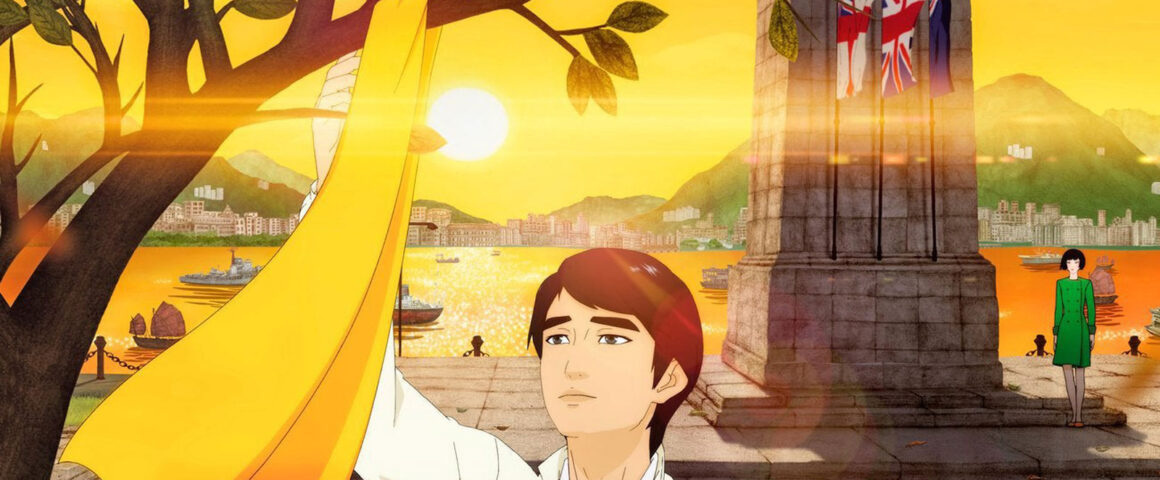Hong Kong director Yonfan’s (“Venice 70: Future Reloaded”) mesmerizing animated film No.7 Cherry Lane (“Jìyuántái qihào”) is steeped in nostalgia yet seeks a balance between past, present, and future. His first film in ten years, No.7 Cherry Lane is Yonfan’s ode to the city of Hong Kong, to cinema in the sixties, and to the swirl of forces that provoked the Mao-inspired Hong Kong protests of 1967. Rendered in 3-D before being hand-drawn in 2-D, the film features an unorthodox love triangle supercharged with eroticism, a dazzling dream sequence, a taste of Chinese hip-hop, youth protest marches against British colonialism, and an elegant blend of Eastern and Western culture in which the characters are equally comfortable discussing Marcel Proust’s “Remembrance of Things Past” and Cao Xuegin’s “Dream of the Red Chamber,” one of the great Chinese classical novels.
Winner of the award for Best Screenplay at the 2019 Venice Film Festival, to Yonfan the film is “a story of love in desperation with all the contradictory ingredients: In and out, high and low, vice and virtue, war and peace, beauty and the beast, east and west, unorthodox and classical, spiritual and physical… all of these are merged into thousands of hand drawn images that nourish the whole film.” “This is a story,” he continues, “about yesterday, today and tomorrow. Above all, it is a film of liberation.” Bolstered by the voices of such known stars as Sylvia Chang (“Long Day’s Journey into Night”), Zhao Wei (“Lost in Hong Kong”), and Ann Hui (“Echoes of the Rainbow”), the film’s impossibly attractive characters include youthful university students, an aging former opera diva, and an ex-revolutionary woman in her forties, each longing to tame and possess the other.
Set in the “Little Shanghai” district of North Point in Hong Kong and based on Yonfan’s short stories, the film is divided into three enigmatically-titled chapters: “Dream Charade,” “Play Shadow,” and “Winter Cometh.” Rather than relying on a conventional narrative to draw us in, the film asks us to use our imagination and sense of wonder to appreciate the images displayed on the screen. Opening with a two-dimensional rendering of Hong Kong in the sixties, we see the winding city streets close to the harbor, images of red cotton trees, as well as the towering presence of the Hong Kong Hilton in ostentatious contrast to the city’s slums. The mood is only broken with the passage of a huge jet that casts a long shadow suggesting that darkness looms just over the horizon.
The focus of the film is Ziming (voiced by Alex Lam, “Lan Kwai Fong 3”), a handsome English student at Hong Kong University who we see playing tennis with his friend Steven (voiced by Stephen Fung, “Amazing”), then again at the showers where another young student, Bookworm, peers through an opening to view the naked bodies. Ziming has been hired to tutor 18-year-old Meiling (Wei) in English but, on reaching No.7 Cherry Lane, he rings the bell of the wrong apartment and is greeted by an aging former opera diva, Mrs. May (voiced by Kelly Yao, “Naked Killer”), who has more cats than furniture. Openly flirting with Ziming, she does her best to persuade him to stay but he escapes, landing at the apartment of Mrs. Yu (Chang).
Yu is a single mother and former revolutionary who left Taiwan during the so-called “White Terror” period and is now an exporter of luxury goods to Taiwan. As they wait for Meiling to come home, they bond over the novels of Proust and Xuequin in which she recalls a chapter about a Taoist nun, Miaoyu who becomes enamored of the man who abducts her, a situation now referred to as the “Stockholm syndrome.” The polite discussion, however, is interrupted by an enchanting dream sequence of consummate skill. Mrs. Yu dreams she is Miaoyu and is abducted against her will by a brutal kidnapper. Brought to a gloomy forest where she is surrounded by snakes, Miaoyu rips off her attacker’s mask only to find Ziming. In turn, he tears off her skin and discovers Mrs. Yu.
Her relationship with the student grows when they see films featuring French actress Simone Signoret such as “Room at the Top” with Lawrence Harvey, “Casque d’Or,” and “Ship of Fools,” films that depict a relationship between an older woman and a young man, a scenario that allows Mrs. Yu to visualize herself in the Mrs. Robinson-type role, an effect reinforced by the theater marquee advertising the film “The Graduate.” To complicate matters even more, Meiling develops a crush on her tutor as they study “Jane Eyre” and “Wuthering Heights” together.
Unable to resist Meiling’s charms, Ziming ultimately must confront his feelings about mother and daughter as well as the desires of Bookworm, and a turned-on black cat. It is no small challenge. Though No.7 Cherry Lane oscillates between contrasting images of past and present, its inspiration does not rest on its message but on its physical beauty and thrilling set-pieces that take us wherever we want to go and even to places we do not.
No.7 Cherry Lane screened at the 2019 Vancouver International Film Festival.




'Movie Review: No.7 Cherry Lane (2019)' has no comments